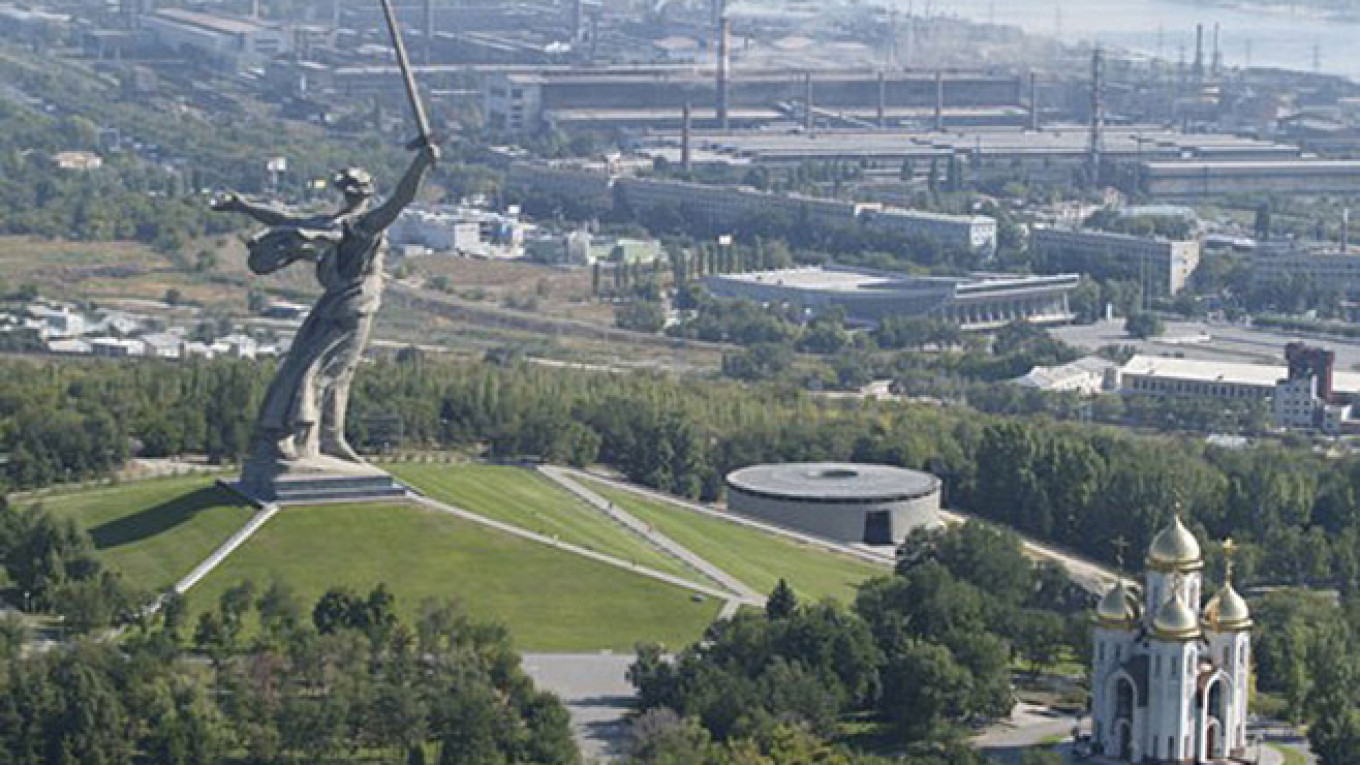As Russia's preparations for the 2018 FIFA World Cup kick into gear, the fate of the planned football stadiums in Volgograd and Nizhny Novgorod has come into question after the billionaire owner of the company set to build the venues threatened to pull out unless the government commits more funds.
In an interview with ITAR-Tass published Monday, Gennady Timchenko, a close ally of President Vladimir Putin, said his construction company Stroitransgaz will withdraw from the stadium projects unless the government raises its cost estimates from 15 billion rubles ($420 million) to at least 17 billion rubles ($475 million).
"There is no way that we can fit into the proposed cost sheet, and Stroitransgaz does not work at a loss," Timchenko said.
Seventeen billion rubles ($475 million) is "the minimum needed to break even" on the projects, Timchenko said. "They plan to allot 24 billion rubles ($670 million) to the arena in Kaliningrad, 19 billion rubles ($530 million) to the one in Rostov-on-Don, 17 billion ($475 million) to the one in Samara, and yet in Nizhny Novgorod and Volgograd, where we are to build [the stadiums], for some reason only 15 billion rubles ($420 million) each!" he grumbled.
Timchenko's concerns are not ungrounded: This year's Winter Olympics in Sochi notoriously bankrupted construction companies Mostovik and Tonnelny Otryad 44, while others, such as Olimpstroi — builder of the Fisht Stadium, the venue of the opening and closing ceremonies — were liquidated after the event.
The cost of the Olympics as a whole snowballed from initial estimates of $12 billion to a staggering $51 billion all told, sparking speculation that the World Cup will follow suit.
However, Sports Minister Vitaly Mutko on Monday defended the government's estimates as reflective of the variables involved in the projects and said the larger prices quoted by Timchenko were unreasonable.
"We have three more complicated stadiums [in Rostov-on-Don, Kaliningrad and Yekaterinburg]. These arenas may turn out a bit more expensive. The other stadiums are ordinary arenas, which should be built within the normal price range that we spoke of," Mutko told sport news agency R-Sport.
Mutko added that exact construction costs cannot be named until government evaluations are completed. So far, only the stadium in Samara has undergone such an analysis, which found that its total price will run to 15 billion rubles ($420 million), he said.
These price disagreements are cropping up at an inconvenient time: construction of the Volgograd stadium is scheduled to begin by the end of the year, and the tournament is less than four years away.
According to the current plan, the 2018 World Cup will take place in 12 stadiums scattered throughout 11 Russian cities, from the exclave of Kaliningrad to the resort capital of Sochi. Mutko earlier this year said that the event would cost a total of $19 billion.
Russia won the right to host the World Cup in 2010 and has proudly embraced its role, although criticism has mounted steadily both at home and abroad. Russian critics say that the massive event is simply too expensive for a country already facing skyrocketing regional budget deficits, while foreign critics have argued that Russia should be stripped of the role due to its annexation of Crimea and alleged backing of separatist rebels in eastern Ukraine.
See also:
Russian Football Commentator Calls for No 2018 World Cup in Russia
Contact the author at [email protected]
A Message from The Moscow Times:
Dear readers,
We are facing unprecedented challenges. Russia's Prosecutor General's Office has designated The Moscow Times as an "undesirable" organization, criminalizing our work and putting our staff at risk of prosecution. This follows our earlier unjust labeling as a "foreign agent."
These actions are direct attempts to silence independent journalism in Russia. The authorities claim our work "discredits the decisions of the Russian leadership." We see things differently: we strive to provide accurate, unbiased reporting on Russia.
We, the journalists of The Moscow Times, refuse to be silenced. But to continue our work, we need your help.
Your support, no matter how small, makes a world of difference. If you can, please support us monthly starting from just $2. It's quick to set up, and every contribution makes a significant impact.
By supporting The Moscow Times, you're defending open, independent journalism in the face of repression. Thank you for standing with us.
Remind me later.






